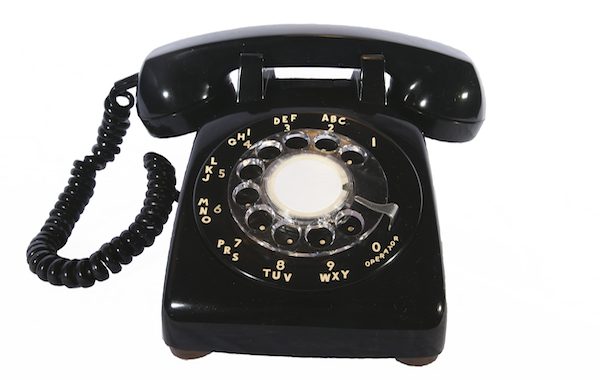
People who know me well think of me as a conundrum of sorts; a mixture of behaviors that don’t normally fit together. For example, I was a preacher for twenty-five years. I preached thousands of sermons to thousands of people. You would think, then, that I love crowds. Actually, I don’t. I prefer small groups of people, and I usually try to blend in instead of being the life of the party. I would much rather spend a quiet evening with the love of my life than attend a concert or sporting event where I feel as if I am a sardine. Some of my children love Black Friday and other people-crammed shopping events. Not me. I am quite temperamental, and repeatedly being assaulted while shopping usually ends with me having homicidal thoughts. Amazon, then, was created for someone just like me. I can sit in my recliner wearing shorts and a robe, and shop to my heart’s content. No muss, no fuss; no bumps, no thumps. Click, click, click, done; all without having to resort to using mindfulness techniques to calm myself down.
I love the privacy my home affords me. Friends and family know that I do not like unannounced visitors. Want to stop by? Make an appointment. My children know that I don’t like them stopping in as they are passing through town. By all means, mow the grass, rake the leaves, or shovel the walks. Just don’t knock on the door. I see many of my children and grandchildren weekly, but it is always at pre-planned events such as dinner, parties, or ballgames. Rarely does a week go by that at least one of them isn’t at our home to visit and eat their mother’s cooking. Again, these lunch or dinner appointments are scheduled ahead of time. It’s not that I can’t do things spontaneously, I can. However, I much prefer living life by the calendar. I am a big Google Calendar fan. Every upcoming appointment, party, and event has an entry.
This brings me to the telephone. I HATE talking on the telephone. Over the past decade, countless readers of this blog have asked if they could call me. Unlike yours truly, they prefer to communicate via phone. I always decline. The greatest inventions of the internet era are email and text messaging. They are perfect for someone with my aversion to talking on the phone. Tell me what you want and I will then answer in as few words as possible. I will, on occasion, engage in longer discussions via text with close friends of mine, but I prefer short and sweet; yes or no; on time or late; Moose Tracks or Neapolitan, to War and Peace-sized text conversations.
My hatred for talking on the phone finds its nexus in my preaching days. Long before email and texting, there were rotary (and later push button) dial telephones. For a pastor, having a phone meant that he was on-call twenty-four hours a day, seven days a week. There were days when I would be gone until late in the evening, only to arrive home and be greeted with numerous phone calls I had to return. Rarely were these calls of any great importance. Most calls were from congregants who either wanted advice or just wanted someone to talk to. I preferred they make an appointment to see me at the office, but, hey, I’m sure the preacher won’t mind if I call him at 10:00 P.M. after he has worked a twelve-hour day, is how many church members thought of the matter.
As thoughtful pastors are wont to do, I chose to put the wants and needs of congregants before my own. No matter how tired I was or what I had planned, if Sister Billy Jo or Brother Billy Bob called, I accepted their calls and politely listened to whatever it was they had to say. Some of these conversations would go on for an hour or more, and on more than one occasion my wife had to nudge me because I was starting to fall asleep.
You might be wondering, Bruce, why didn’t you just tell them you had to go? Good question. The short answer is that I never could bring myself to inconvenience people or make them feel as if they were a bother. I had colleagues in the ministry who refused to accept calls at home from church members. I had other pastor friends who had no problem with cutting off long-winded callers, even going so far as to lie if needed to get off the phone. Unfortunately, I never could do so. Thus, decades of listening to droning phone calls have developed into a hatred for telephone conversation And I suspect my desire to be left alone stems from the constant stream of church members stopping by my home and office unannounced so they could share with me their latest greatest burden, complaint, or prayer request.
If I had to trace all of this back to its source, I imagine the blame would lie at the feet of my obsessive-compulsive personality. Obsessive compulsive personality disorder (OCPD) plays a prominent part in the day-to-day rhythm of my life. I desire and crave order. I like to be in control. My children heard me say to them countless times growing up: everything has a place. Forty-four years of marriage and a hell of a lot of marital squabbles have taught me that not everyone can or wants to live their lives as I do. I had to learn that it is okay for people to be different from me; that it is okay for people to be disordered and cluttery; that it is okay for people to fly by the seat of their pants. I also had to learn that it is okay for me to be the way I am as long as I don’t demand others conform to my way of life. My relationships with family and friends are much better now that I have stopped trying to straighten everyone’s crooked pictures. All of us are who we are. For me, that means not liking to talk on the telephone. If I didn’t need a cell phone for medical emergencies, I wouldn’t have one. Send me a text or an email, if you must, but please don’t call; that is unless you want to give me a large sum of cash. Why, for money I’ll do almost anything, including talking on the phone. 🙂
Bruce Gerencser, 66, lives in rural Northwest Ohio with his wife of 45 years. He and his wife have six grown children and thirteen grandchildren. Bruce pastored Evangelical churches for twenty-five years in Ohio, Texas, and Michigan. Bruce left the ministry in 2005, and in 2008 he left Christianity. Bruce is now a humanist and an atheist.
Connect with me on social media:
Your comments are welcome and appreciated. All first-time comments are moderated. Please read the commenting rules before commenting.
You can email Bruce via the Contact Form.

